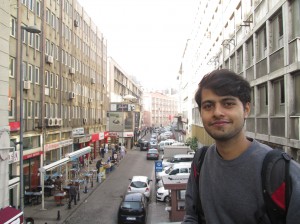The PhD is one qualification students prefer to study outside India, but with rising costs, more students are looking to study within the country. Aparna Sundaresan introduces you to the Indian PhD
PhD? What’s that?
* A Doctor of Philosophy is an intense, research-based qualification undertaken after a master’s degree
* It is highly academic and focused
* A PhD student identifies gaps in knowledge in a field and attempts to fill the gap with research and study
* The PhD culminates in a written thesis of substantial length
Types of PhD
A student may do a PhD in broadly two ways in India:
* Full-time: the student dedicates all their time to research and might reside at the university; average completion time is 5 years
* Part-time: the student dedicates a part of their time to research and may be employed professionally; average completion time is 6-7 years
Should you do a PhD?
A PhD requires iron-clad commitment, so ruminate on these points first:
* Your motivation: This is the most important factor. Are you doing a PhD for the love of the subject? Or for a bump in your career or pay package? Or merely because you cannot get a job? The stronger the motivation, the more you will be committed to research.
* Your finances: Do you have the money to pay for your PhD or do you need funding? Does your subject attract funding in India? If not, can you afford to pay for it yourself?
* Your thought process: A doctorate requires original and critical thought. You will need to analyse your area of interest critically and creatively to find the niche no one has addressed before. You must be analytical and thoughtful when reviewing research that has already been done in your subject. There is no copy-paste in PhD.
* Your style of studying: A PhD is for candidates who are self-driven and not afraid to sit for hours with books or in labs or with research papers, several times working by themselves. A professor will guide you, but ultimately, the PhD rests on the shoulders of you, the student.
Eligibility
* A master’s degree (attained via the 10+2+3+2 route) with a passing score of minimum 55%or equivalent grade in the relevant field from any recognised Indian or foreign university
* Some institutes also accept just a bachelor’s degree, but usually require the degree to be of 5 years or an integrated one or for the student to have an exemplary academic record
* If you intend to pursue a career in teaching, having a NET (National Eligibility Test) or SLET (State Level Eligibility Test) qualification is mandatory
* Engineering PhD applicants may need to write GATE (Graduate Aptitude Test in Engineering). Additionally, for funding from Council of Scientific and Industrial Research (CSIR), the CSIR-UGC NET test must be taken. This could also qualify a candidate for lectureship
* For a PhD in biomedical or social science with funding from the ICMR (Indian Council of Medical Research), taking the JRF (Junior Research Fellowship) exam is mandatory
* An MPhil is not compulsory, but serves as a foundation to PhD
Admission procedure
* Fill out the institute’s admission form and attach requisite documents: mark sheets, certificates, etc
* Write up a research proposal outlining the topic and aims of your research
* Pay the admission fee (varies from institute to institute)
* Write an entrance exam for each institute applied to. Candidates with NET, SLET, GATE, JRF NET, CSIR NET or MPhil qualifications can be exempt
* Appear for a personal interview where thrust will be on your research interest
* Admission is granted directly into a PhD programme or through an MPhil programme
Course work
* A PhD student is assigned a supervisor from the institute. If the institute cannot provide a supervisor, the student must find a guide at the time of application
* Course work of one semester (or six months) on research methodology, quantitative methods and computer applications is compulsory; may also involve reviewing of published research
POPULAR RESEARCH AREAS
The more popular subjects of research in India are within:
* Science and technology
* Engineering
* Management
* Biological and medical sciences
The mind of an average PhD student
* Research work is then undertaken and a draft thesis is presented in the time set
by the institute
* Before the final thesis is submitted, the student makes a presentation of their
research to their department
* The student also publishes at least one research paper in a refereed journal
* After submitting their thesis, the student appears for a viva voce exam
The pros
* A PhD qualifies you as an expert, which opens a plethora of career options not available to a mere graduate
* A PhD prepares you for mental rigours and hones your critical thinking and analytical abilities
* If you have an academic bent of mind, a PhD will give you immense intellectual satisfaction
* Doing a PhD in India costs less
The cons
* There is always the risk of whether the investment will actually pay off
* Since funding in India is limited, one will have to finish PhD with fewer resources
* PhDs may be overqualified for a job; they may not find a regular 9-to-5 job
intellectually stimulating enough
* The sheer length of time spent in completing a PhD can be a deterrent
Life after PhD
A doctorate is the route to an academic career. Within academia, the options include:
* Teacher/professor/lecturer
* College principal
* Research assistant
* PhD guide/supervisor
* Post-doctoral fellow Non-academic careers include:
* Jobs in the relevant industry
* Consulting
* Entrepreneurship
* Financial analysis
* Government positions
* Positions in think tanks
Indian PhD vs foreign PhD
* While it differs from subject to subject, generally, there is more exposure for a PhD student abroad.
* The import of research outweighs job prospects abroad, while in India there is lesser focus on research and more concern for one’s career.
* There is more funding available abroad.
* The PhD guide dictates much of what goes into the research here; an amicable supervisor means half the job is done. Abroad, the supervisor does not spoon-feed any student.
* There is the shady business of PhDs being sold as commodities in India. Such instances, though not non-existent abroad, are much less frequent.
SPOT THE FAKE PhD
Awarding of fake PhDs is rampant in India, so here is how you check if the institute of your choice is awarding genuine doctorates:
* The institute is recognised by the UGC to award doctorates and its NAAC grade is not below B
* The institute does not ask for exorbitant amounts of money at the time of application and/or registration. Asking for a few lakhs could mean the institute is merely selling the degree
* A fake PhD would involve no classes, no projects and no thesis submission and the duration of study quoted by the institute would be suspiciously short (6 months, 1 year, etc)
* The supervisor to student ratio should be 1:10 i.e. 10 students per supervisor. The supervisors must all have doctorates. Check how many supervisors are in the faculty and how many PhD students have enrolled
COURSE CANVAS
* Indian Institute of Technology, pan India
* Indian Institute of Science, Bangalore
* Tata Institute of Social Sciences, Mumbai
* Institutes under Council of Scientific and Industrial Research, pan India
* Tata Institute of Fundamental Research, Mumbai
* The English and Foreign Language University, Hyderabad
Student speak
“I would like make it clear that resources available for research in India are not as limited as they appear. Government organisations like CSIR, DST, etc are coming up with new initiatives to enhance the current research level.There are examples of ground breaking research being carried out at the IITs. But there is definitely room for improvement. With an increase in the number of PhD candidates and growing faculty strength, the quality of research is definitely going to improve.” – Vineet Gokhale, PhD student, IIT Bombay
Professor speak
“The area of research interest of the student and the [PhD] guide should be aligned. Further, academic and intellectual compatibility is necessary for turning out a purposeful research work.In India, PhD mainly helps those in the field of higher education for career progressions and hike in pay scales. Some industries like pharmaceutical, chemicals, etc need PhDs for their research and development departments.” – Dr Lata Swaminathan, Associate Professor and HOD Commerce, NES Ratnam College, Mumbai
WAYS TO FUND A PhD
A PhD can be selffinanced or paid for through a grant by the UGC or a private recognised body. A grant is always preferable owing to the long duration of a PhD and the expensive nature of individualised study and research.
Rs. Prime Minister’s Fellowship Scheme for Doctoral Research, awarded by DST (Department of Science and Technology) and CII (Confederation of Indian Industry)
Rs. Education and travel grant, awarded by Ratan Tata Trust and Navajbai Ratan Tata Trust
Rs. Better Opportunities for Young Scientists in Chosen Areas of Science and Technology (BOYSCAST), awarded by DST
Rs. Shyama Prasad Mukherjee Fellowship and CSIR Research Fellowship, awarded by CSIR
Rs. ICMR Fellowship, awarded by ICMR
Rs. Junior Research Fellowship awarded by DBT (Department of Biotechnology), ICMR and UGC
Volume 3 Issue 7






























